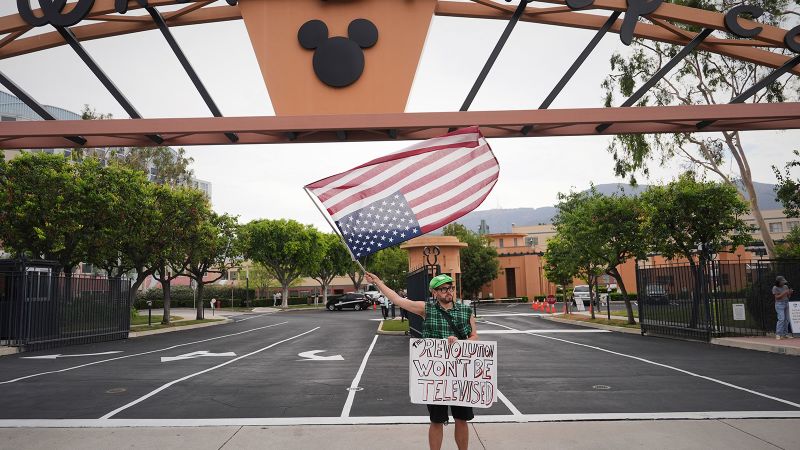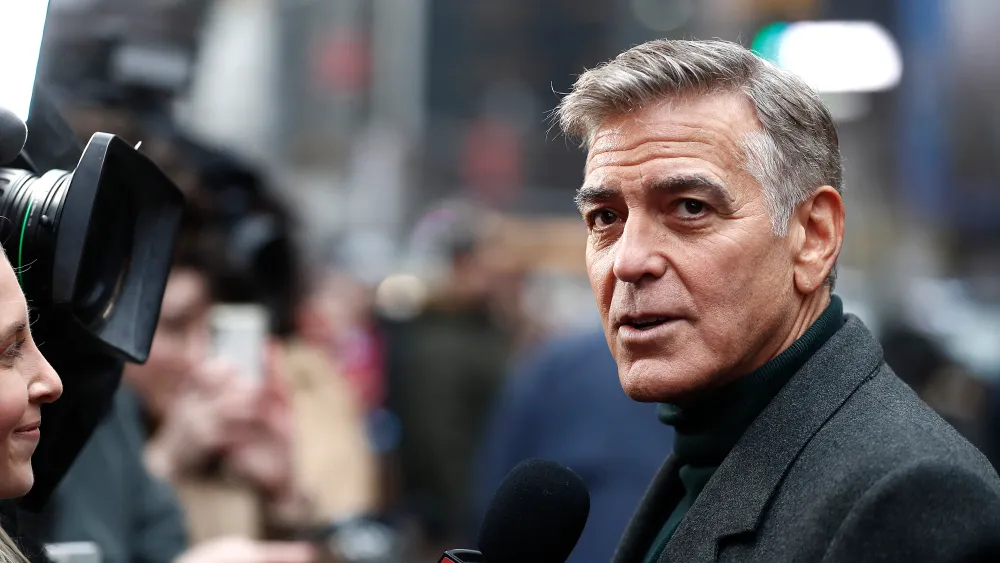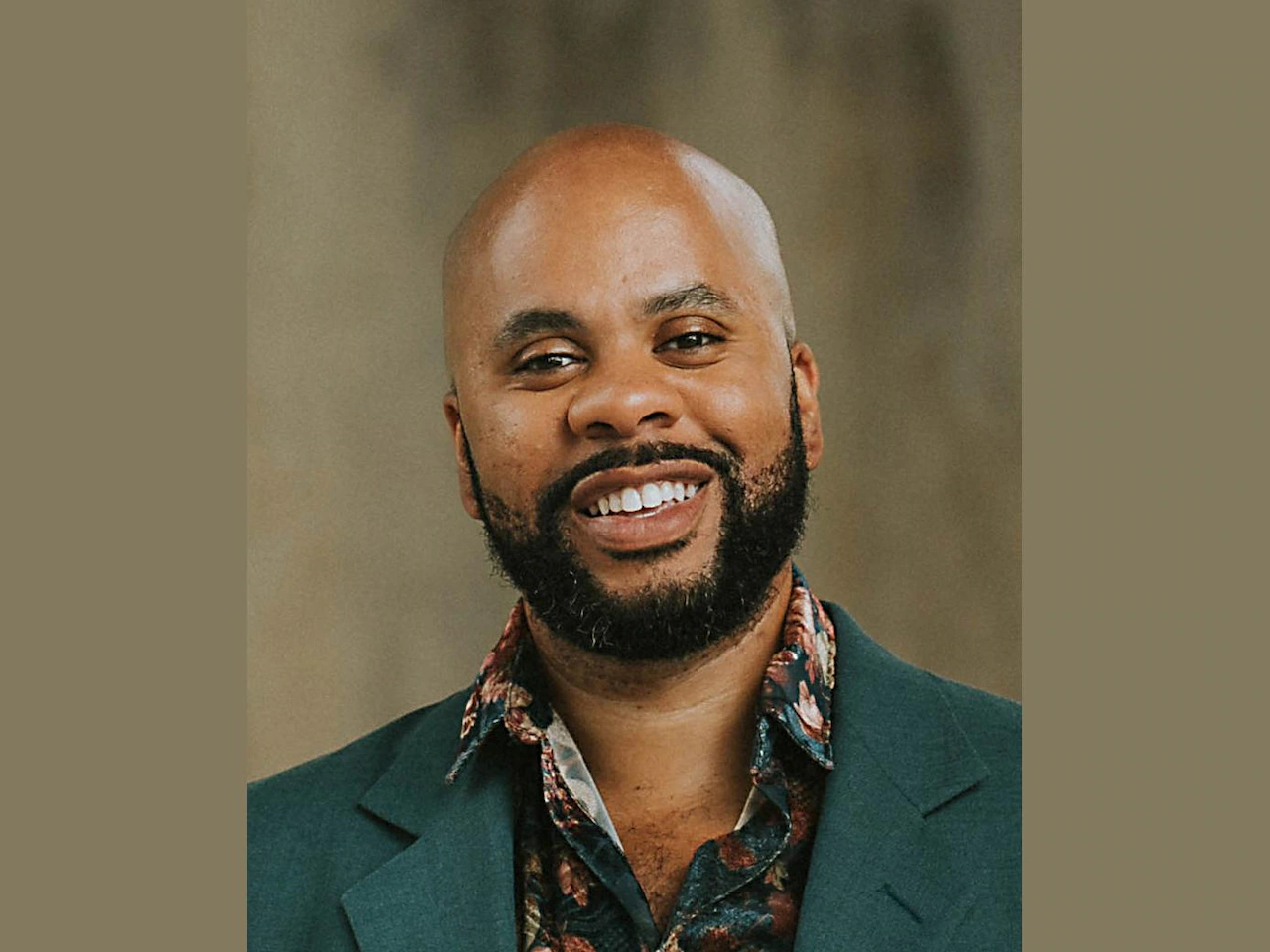With the Jimmy Kimmel saga, the media is learning what happens when you give a mouse a cookie

Late last year, ABC News spent $16 million to settle a defamation lawsuit with President Trump. At the time, you could squint and see the business sense of it: Just pay up, say you’re sorry and this will all blow over.
It’s not blowing over. And it won’t.
Across Corporate America, companies are learning the hard way that giving Trump what he wants won’t appease him — it will only stoke his appetite. (It seems some folks have forgotten the sage wisdom underpinning Laura Joffe Numeroff’s 1985 classic “If You Give a Mouse a Cookie.” Spoiler alert: The mouse has some more demands.)
ICYMI: ABC in December agreed to donate $15 million to Trump’s presidential library and pay $1 million in legal fees to the law firm of Trump’s attorney. It also published an editor’s note expressing regret for an on-air misstatement by George Stephanopoulos. The case had centered on the anchor’s imprecise wording around the 2023 verdict that found Trump liable for sexually abusing E. Jean Carroll in the 1990s. (Under New York law, Trump was not found liable for “rape,” as Stephanopoulos had characterized it.)
Nine months after ABC conceded that fight, the network decided to throw in the towel on a fight that hadn’t even begun.
Just hours after the head of the Federal Communications Commission, Brendan Carr, made vague threats to suspend ABC’s broadcast license over comments by Jimmy Kimmel during his show, the network pulled the plug on the comedian’s late-night show indefinitely.
ABC is hardly alone.
Just five months before the original ABC settlement, rival CBS paid an almost identical settlement — $16 million, covering legal fees and a pledge to Trump’s presidential library — to avoid fighting an easily winnable lawsuit brought by the president. Why?
The CBS settlement was widely seen as a concession by the network’s parent company, Paramount, which was trying to secure a merger with Skydance Media at the time. The companies and Trump have denied that there was any link between the settlement and the merger, which was completed last month.
The companies also claim that canceling “The Late Show With Stephen Colbert” in July was purely a business decision and not a concession to a president who doesn’t like being the target of Colbert’s jabs.
That “it’s just business” line has become a go-to defense for Trump against accusations he is attacking free speech.
On Thursday, Trump and other Republicans insisted that Kimmel’s suspension was a decision driven by poor viewership rather than punishing dissent.
“He had bad ratings more than anything else,” Trump said. Senate Majority Leader John Thune echoed that sentiment, saying Kimmel was simply a victim of market forces and that the network made “economic market decisions.”
But it still smells a bit funny.
While late-night TV viewership has been declining across the board, Kimmel and Colbert have ranked among the highest-rated shows among the key demographic of viewers ages 25 to 54. The shows are also popular on YouTube and TikTok, which don’t count toward TV ratings. It may be true that Kimmel and Colbert weren’t making enough money, but it’s impossible to ignore the timing of the decisions.
“It’s not a business decision. It was a political decision, full stop,” said journalist and media critic Jeff Jarvis in an interview. “If Colbert was losing money, why wasn’t he canceled a year ago? Why wasn’t Kimmel canceled before? The business of linear television is tough, true, but … you could make Colbert or Kimmel very inexpensively if the network wanted to make it profitable.”
And Trump himself is starting to give up the game.
On Air Force One on Thursday, Trump also appeared to depart from the “business decision” line and acknowledge that he just really doesn’t like being made fun of and thinks networks’ broadcast licenses should be revoked if they air overwhelmingly negative perspectives on him.
“When you have a network and you have evening shows and all they do is hit Trump, that’s all they do,” he said. “They’re licensed. They’re not allowed to do that.”
To be clear, they are allowed to do that. (Or at least, they have been.)
Trump added that ultimately it’ll be up to Carr, the FCC chair he appointed, to make decisions about licensing. Though Trump has made clear what happens to officials who don’t do what he wants.
Meanwhile, the backlash against ABC and its corporate parent, Disney, for tossing a beloved comedian under the bus was already gathering steam.
Damon Lindelof, the writer and producer of hit shows including ABC’s “Lost,” wrote on Instagram that he won’t work with Disney unless Kimmel is reinstated.
Across social media, outraged viewers are calling for a boycott of Disney and its properties, including Hulu.
“Let’s do to Disney what we did to Target,” wrote Keith Edwards, a left-leaning commentator, on Threads, referring to a campaign to boycott the retailer after it backtracked on its diversity, equity and inclusion pledges. (Target’s sales and stock are in the gutter, and last month it said its CEO was stepping down amid the boycott and other business headaches.)
Bottom line: Corporate America made a big gamble on the theory that playing nice with Trump, a leader known to pick fights on social media that can tank a company’s stock, would buy them some kind of good will. It’s not working. Carr and Trump won’t stop with Kimmel — in fact, Trump already posted on social media Thursday that “Jimmy and Seth” (Fallon and Meyers) should be on NBC’s chopping block. “Their ratings are also horrible. Do it NBC!!!”
Separately, Carr said he thinks it would be “worthwhile” to have his agency “look into whether ‘The View’ and some of these other programs … still qualify as bona fide news programs.”
ABC gave the administration a $16 million cookie. It’s coming for its glass of milk.
“Those who cave in — those like ABC who cave in — what they do is give the bully an even bigger appetite,” Democratic Senator Chris Van Hollen told MSNBC on Thursday. “When they appease the bully, they put all of us at risk.”



